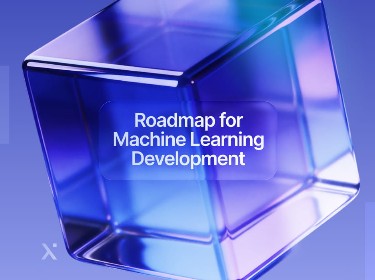Let's be honest. You've probably waded through a dozen articles on "AI for business" that felt... a bit like a chatbot wrote them. Same old examples, same slightly sterile predictions. We wanted to cut through that and give you a new perspective on AI.
The AI scene is exploding – think a market zooming past USD 638 billion in 2024 towards a wild USD 3.6 trillion by 2034. But the real story isn’t just about the revenue, it’s the untapped AI business opportunities waiting for entrepreneurs and established businesses alike who can see past the hype. We’re talking about solving real-world problems and creating new value in ways we couldn’t before.
So, we actually sat down with our in-house AI development services specialists – the people in the trenches, building and dreaming up this stuff daily – to hammer out a list of the best AI business ideas and insights. We want to give you actionable intelligence that sparks real innovation, not just a nod to the latest tech trend. These are glimpses of what’s becoming possible right now, peppered with real-world examples and tools you can explore.
Can’t-ignore trends shaping tomorrow’s business
Before we dive into specific ideas, let’s look at the bigger currents, including insights from big data consulting services. These are the AI trends that are less about fleeting fads and more about fundamental shifts in how business will operate:
Hyper-personalization hits prime time
We’re moving way beyond just putting a customer’s first name in an email. AI is now capable of understanding individual preferences and behaviors at a granular level, allowing businesses to deliver uniquely tailored experiences, product recommendations, and even services. It’s like Spotify’s Discover Weekly, but for everything. The appetite is there, with studies indicating 65% of consumers prefer AI-driven personalized plans in areas like retail, healthcare, and similar trends across eCommerce and media.
Generative AI as your creative partner
Tools like ChatGPT, DALL-E, and Midjourney have thrown open the doors to AI-assisted content creation. This is about augmenting human creativity. Businesses are exploring generative AI business ideas and turning to an AI consulting firm for everything from drafting initial marketing copy and generating unique visuals to coding assistance and even product design brainstorming. The market here is white-hot, valued at nearly USD 38 billion in 2025 and projected to rocket past USD 1 trillion by 2034, with a blistering CAGR of 44.20%.
Making AI understandable and fair
You know, as AI gets more and more powerful, people are really starting to ask for it to be open and fair. It’s not enough for companies to just roll out these “mystery box” AI systems, especially when they’re dealing with big stuff like loan applications, who gets hired, or medical decisions. We’re seeing a big push for what’s called “Explainable AI” – basically, AI that can actually tell you how it came up with an answer. Plus, there’s a huge emphasis on making sure these systems aren’t biased and are used in a way that’s actually ethical. And honestly, this isn’t just about looking good anymore; it’s what people expect, and the rules are starting to catch up too.
Automation’s getting a brain upgrade
AI-driven automation isn’t just for the boring, repetitive jobs anymore. These days, smart automation can tackle really complicated processes, make pretty subtle judgment calls, and even learn as it goes. Imagine AI running entire supply chains, tweaking energy use on the fly to save power, or even lending a hand in complicated science projects. It’s a whole new level of smart.
Democratization through low-code/no-code AI
You don’t necessarily need a PhD in machine learning to leverage AI anymore. The rise of low-code and no-code AI platforms means that people with less technical expertise can build and deploy AI-powered applications and speed up MVP development services processes. This is a huge enabler for small businesses and non-tech departments within larger organizations, sparking a wave of grassroots AI startup ideas.
Top 10 Machine Learning Development Companies
How Much Does AI Development Cost in 2025?
AI in Transportation Overview 2025
AI in action: how the big players are already winning
![]()
Wondering if this AI stuff is just for startups? Think again. Some of the world’s largest companies have been integrating AI into their core operations for years, and it’s a key part of their success:
Netflix
Their recommendation engine, responsible for a huge chunk of what users watch, is legendary. It uses AI to analyze viewing habits, ratings, and even time of day to suggest content you’re highly likely to enjoy, keeping subscribers hooked and reportedly influencing 80% of content watched.
Amazon
AI is everywhere at Amazon. It powers Alexa, optimizes their incredibly complex logistics and warehouse operations (predicting demand, routing packages efficiently with AI-planned routes), personalizes shopping recommendations, and helps detect fraudulent reviews, contributing to their e-commerce dominance.
From the RankBrain and BERT algorithms that refine search results to the AI powering Google Assistant, Google Translate (supporting hundreds of languages), and the smart features in Gmail (like spam filtering and Smart Compose), AI is fundamental to nearly every Google service. They are also leaders in AI research, constantly pushing the boundaries.
BMW & other manufacturing giants
Companies like BMW use AI for predictive maintenance on factory robots (fixing them before they break, saving millions in downtime), quality control through high-speed image recognition (spotting tiny defects humans might miss), and optimizing production line efficiency through smart resource allocation.
American Express & financial institutions
AI is a crucial weapon in the fight against fraud, analyzing billions of transaction patterns in real time to flag suspicious activity with incredible accuracy. It’s also used for credit scoring, customer service chatbots handling millions of inquiries, and personalized financial advice.
When you look at these giants, you see that artificial intelligence and business intelligence services aren’t just pie in the sky, they’re making a real difference and helping companies get ahead.
What Are AI Agents: Types, Examples, and Benefits
How AI Empowers Digital Transformation Across Industries
From Idea to Launch: The Essentials of eCommerce MVP Development
Cool AI tools any business can benefit from
| AI boosts | Benefit | Examples |
| AI summaries, transcriptions, action items | Save time, never miss key meeting points | Slack/Teams (AI), Fireflies, Otter |
| Predictive insights (leads/churn), automation | Focus sales on best leads, proactive support | Salesforce E., Zoho Zia, HubSpot AI |
| AI content drafts, ad optimization, SEO | Faster content, better marketing ROI | Jasper, Copy.ai, Canva |
| Plain-language queries, auto-insights | Easy data insights for all, quicker decisions | Power BI (AI), Tableau |
You don’t always need to build a bespoke AI empire from scratch. A wealth of off-the-shelf AI copilot development services can slot right into your existing operations and deliver immediate, tangible benefits. Think of these as force multipliers for your team, no matter the size of your business. For more complex or evolving challenges, engaging in adaptive AI solution development can create systems that learn and adjust alongside your business. Here are some categories packed with “cool” and genuinely useful AI helpers:
Communication & collaboration hubs
No more inconvenient chat windows. Modern collaboration platforms are getting serious AI upgrades. Imagine tools like Slack or Microsoft Teams, but with AI that automatically summarizes lengthy discussion threads, identifies key decisions and action items from meetings (even if you missed them!), and offers real-time translation during international calls.
Some can even analyze team communication patterns to suggest more efficient workflows or flag potential information silos. These tools don’t just help you talk, they help you understand and act smarter, together. For instance, AI meeting assistants like Fireflies.ai or Otter.ai can transcribe, summarize, and extract insights from your meetings, saving hours of note-taking and follow-up.
CRMs that understand your customers
Your Customer Relationship Management (CRM) system shouldn’t just be a digital Rolodex. AI-powered CRMs (think Salesforce Einstein, Zoho CRM with Zia, or HubSpot’s AI features) transform it into a proactive sales and service engine. These systems can automatically log sales activities, enrich customer profiles with publicly available data, score leads based on their likelihood to convert, and even predict customer churn before it happens.
Think about your CRM nudging you to call a specific client because their online behavior patterns (analyzed by AI) suggest they’re ready to make a purchase or, conversely, are showing signs of looking elsewhere. That’s a serious upgrade from just storing contact info.
Marketing & content co-pilot
Marketing in the AI era is getting a serious boost. If you want to get a better grip on what your audience is thinking, AI tools can be a real help. They’re pretty good at figuring out the general feeling from social media posts or customer reviews. Plus, they can make your advertising budget go further by figuring out which ads are likely to do well and tweaking your spending on them automatically.
And then there’s content creation: tools like Jasper, Copy.ai, or even Canva’s Magic Write can help you draft blog posts, social media updates, email sequences, and product descriptions in minutes. They can also analyze your existing content for SEO effectiveness and suggest improvements. It’s like having a junior marketer, SEO specialist, and copywriter on call 24/7, ready to brainstorm or bang out first drafts.
Data analysis that speaks your language
Data is gold, but only if you can understand it. AI eases and speeds up data analytics development. Tools like Microsoft Power BI with its AI insights, Tableau with its “Ask Data” feature, or specialized platforms like Polymer or Akkio allow non-analysts to ask questions of their data in plain English and get back easy-to-understand visualizations and insights.
These platforms can automatically spot trends, identify anomalies (“Why were sales down in the Northeast last Tuesday?”), and even generate narrative summaries of complex datasets. This means faster, more informed decision-making for everyone, not just your data science team.
Check out top 12 data analytics tools that will make your life easier
Finance & accounting bots
Bookkeeping and financial admin can be a grind. AI is here to help. Tools like Xero, QuickBooks (with its AI-driven features), or specialized platforms like Booke.ai and Datarails are automating tedious tasks like expense categorization, invoice processing, and bank reconciliation. These tools are also handy for getting a sharper picture of your cash flow.
By looking at your past financial info, they can give you a more educated guess about what money will be coming in and going out. Some AI can even act like a watchdog, spotting odd transactions that might be fraud. And when tax time rolls around, they can help make sure all your financial info is neat and tidy, just the way it needs to be. This frees up valuable time and reduces the risk of costly human errors.
Smarter hiring
Finding and keeping great talent is paramount. AI tools are streamlining many HR processes. For recruitment, AI can help write more inclusive job descriptions, screen resumes much faster than humans (while hopefully being programmed to reduce AI bias), match candidates to roles based on skills and potential, and automate interview scheduling.
For existing employees, AI can personalize onboarding experiences, power internal knowledge bases, analyze employee feedback from surveys to identify engagement trends, and even suggest personalized learning paths for professional development. Tools like Textio for augmented writing in JDs or platforms like Eightfold AI for talent intelligence are examples.
These tools are augmenting human abilities, automating the mundane, and unlocking new levels of efficiency and insight. For any business, big or small, dipping a toe into these AI waters can lead to some seriously cool improvements.
How specific industries can apply AI into the workflow
![]()
Now, let’s revisit and expand on those fresh, non-mainstream AI entrepreneur ideas we talked about, perhaps adding a bit more flavor:
Agriculture
Imagine this: A small organic farm uses an AI app that integrates drone imagery with soil sensor data. AI spots some early fungus on your tomatoes, suggests an organic fix, and boom – you’ve saved a significant part of your crop. It can also give you a heads-up on the best harvest times based on weather and market trends.
Key success factor: Affordability and ease of use for non-tech-savvy farmers. Integration with existing farm management software.
Stats spotlight: The AI in agriculture market is set to grow from around USD 2.4 billion in 2025 to over USD 10 billion by 2032.
Supply chain
Imagine this: A B-Corp certified clothing brand uses this AI to continuously monitor its entire supply chain, providing customers with a dynamic “ethical score” for each garment via a QR code. The AI flags a subcontractor suddenly using a non-certified dye.
Potential challenge: Gaining access to reliable, verifiable data from complex global supply chains, defining universal ethical standards.
Ecology
Imagine this: City planners use AI to simulate the ecological impact of different urban greening projects, optimizing for bee-friendly plants near community gardens or noise-dampening foliage near busy roads. The system also tracks migratory bird patterns to ensure new constructions don’t disrupt them.
Key success factor: Collaboration between AI developers, urban planners, ecologists, and community groups.
Healthcare: insightful appointments
Imagine this: An AI companion subtly notices that an elderly person is taking longer to get out of their chair and suggests they mention it to their doctor, while also initiating a video call with their daughter to share a happy memory it “recalled” from a past conversation. It might also detect loneliness patterns and suggest local community activities. This is one of the best AI company ideas for blending tech with compassion.
Ethical consideration: Ensuring privacy, preventing over-reliance, avoiding emotional manipulation, and ensuring human oversight.
Healthcare: patient recovery
Imagine this: A patient recovering from knee surgery uses an app with wearable sensors. The AI not only guides exercises but also shows them a 3D model of their knee, highlighting which muscles they’re activating correctly. Through sophisticated GPT integration, the app can converse with the patient in natural language, understanding their feedback on pain levels and answering questions about their recovery, which allows it to intelligently adjust exercise difficulty based on both subjective reports and objective movement data.
Key success factor: Integration with healthcare professionals, validation through clinical trials, and user-friendly interface for all tech comfort levels.
Healthcare: mental wellness
Imagine this: A young professional uses an AI wellness app to guide them through a 5-minute mindfulness exercise before a stressful presentation and to track mood patterns, noticing a dip every Sunday evening, prompting them to explore pre-week planning or relaxation techniques.
Crucial element: Clear disclaimers that it’s a support tool, not a replacement for professional therapy, and robust data security. The AI mental wellness market is projected to reach USD 30 billion by 2035.
Engineering
Imagine this: An engineering firm uses specialized generative AI to create initial drafts of hyper-complex technical documentation for a new engine, complete with diagrams and multilingual translations, which experienced engineers then refine and validate.
Potential challenge: Ensuring the accuracy, safety, and IP ownership of AI-generated technical content.
Education
Imagine this: A vocational school uses AI-driven simulations where aspiring electricians can “wire” virtual buildings and receive instant feedback on errors, learning by doing in a safe environment. The AI could even simulate rare but critical fault scenarios. This AI idea for business could bridge significant skills gaps, as AI can boost learning efficiency by up to 57%.
Key success factor: Creating realistic and engaging simulations that accurately reflect real-world tasks and safety protocols.
Government and public awareness
Imagine this: A small-town newspaper uses AI to scan all local government meeting minutes and public records, flagging potential conflicts of interest or unusual spending patterns for a journalist to investigate further. It could also generate initial summaries of routine sports events. These are impactful artificial intelligence business opportunities.
Ethical consideration: Ensuring AI doesn’t introduce bias into newsgathering or replace journalistic judgment and critical analysis.
Culture
Imagine this: An indigenous community partners with AI developers to create an interactive platform where elders can record stories in their native language, and AI helps with transcription, translation, and creating learning modules for younger generations, even generating new, simple stories in the language for children. Adding to truly inspiring AI startup ideas.
Key success factor: Deep community involvement, ownership of the project and data, and cultural sensitivity.
B2B cooperation
Imagine this: A sales team uses an AI tool during a complex B2B negotiation. The AI analyzes the client’s proposal in real-time, cross-references it with historical data from similar deals, identifies key leverage points, and subtly suggests three optimal counter-offer points and phrasing to the salesperson via a private screen. A bold AI entrepreneur idea.
Potential challenge: The “black box” nature of some AIs, negotiators need to understand the why behind suggestions and maintain human oversight.
Corporate training
Imagine this: An employee looking to move into a management role gets a personalized AI-driven learning path that includes micro-learning modules, simulated leadership challenges with AI-driven characters, and connections to mentors who have successfully made a similar transition. This offers huge AI business opportunities for L&D, especially with the corporate e-learning market expected to hit USD 44.6 billion by 2028.
Key success factor: High-quality, diverse learning content, accurate skills assessment, and integration with performance management.
More examples of AI implementation in healthcare – read here
AI life hacks: little bits of smartness for a better workday
![]()
AI isn’t just for big business strategies, it can also offer little boosts to your daily productivity and well-being:
Smart calendar
Smart calendars (like Google Calendar with Goals, or newer AI-powered scheduling assistants like Reclaim.ai or Clockwise) learn your meeting preferences, find optimal times for team sync-ups, and even help you block out (and defend!) focused work time.
Email manager
Beyond basic spam filters, AI tools (SaneBox, or features within Gmail/Outlook) can now learn to sort your inbox by priority, summarize long email threads, and even draft quick replies to common queries, helping you escape email overload.
News aggregator
AI-driven news aggregators (like Artifact, Feedly’s AI features, or personalized feeds in major news apps) learn what topics and sources you prefer, delivering a customized news experience that cuts through the noise and keeps you informed without overwhelming you.
Summarizer
Got a 50-page report or a lengthy article you don’t have time to read? AI summarization tools, which integrate chatbot development (built into some browsers, or dedicated apps like Wordtune Read) can quickly give you the key bullet points and main arguments, saving you precious time.
Language tutor
Apps like Duolingo, Babbel, or Elsa Speak increasingly use AI to personalize lessons, adapt to your learning speed, provide more realistic conversational practice, and even correct your pronunciation with uncanny accuracy.
The applications of AI are incredibly broad. Here are a few more diverse examples:
- Predictive analytics and maintenance in factories: AI analyzes sensor data from machinery to predict when a part is likely to fail, allowing for maintenance before a costly breakdown occurs. This is huge in manufacturing, energy, and transportation.
- Speeding up drug discovery: AI algorithms can analyze vast datasets of molecular structures, genetic information, and clinical trial data to identify potential new drug candidates and personalize treatments much faster and cheaper than traditional methods.
- Global customer support: AI can provide instant translation during live chats, calls, or even translate product documentation on the fly, breaking down language barriers between support agents and international customers.
- Robo-advisors for personalized investing: AI-driven platforms offer automated, algorithm-based financial planning and investment management, making personalized advice more accessible and affordable for a wider range of people.
- Smart city traffic management: AI can analyze real-time traffic flow from cameras, GPS data, and road sensors to dynamically optimize traffic light timing, reroute vehicles, predict congestion, and improve public transport efficiency.
So, what now? Getting into action
![]()
That was a lot, right? If your head is buzzing a little, that’s a good thing. The world of AI is vast and moving at lightning speed. The core message, though, is simpler: AI is a powerful set of tools, and the best AI company ideas and applications will come from creative humans like you figuring out how to apply that power to real needs and interesting problems.
Whether you’re dreaming up the next big AI startup idea, looking for ways to make your current business smarter with artificial intelligence app development services, or just curious about how these technologies are shaping our world, the key is to stay curious, keep learning, and don’t be afraid to experiment.
The most exciting AI business opportunities won’t be found in a magic formula, but in that blend of human ingenuity, specific industry knowledge, and a smart application of these evolving technologies. Forget waiting for the “next big thing” to be announced, the tools we’ve discovered today and inspiration for countless AI ideas for business are already here. The question is: what will you build with them? Our IT consulting team can help brainstorm your big AI move.
FAQ
The main thing? AI is a rapidly evolving toolkit that any business, big or small, can start using to innovate, automate intelligently, and get closer to customers, often with tools you can use today.
Definitely not! While custom AI small business ideas and solutions need experts, many powerful AI tools are built for everyday users. Plus, “low-code/no-code” platforms are making it easier than ever to tap into AI without writing a single line of code. Focus on what problem you want to solve, not just the tech.
Absolutely! Some of the best AI business ideas are popping up in unexpected places: with computer vision, AI is helping small farms become more sustainable, enhancing elder care with personalized companions, aiding in the preservation of indigenous languages, or even boosting local journalism.
Generative AI is a huge one to keep your eye on. It’s dramatically changing how we create everything from marketing copy and images to software code and product designs. Think of it less as a machine and more as a new kind of creative and operational partner.
Loads of ways! You can use AI-powered CRMs for smarter sales insights, marketing tools to help draft content or manage ads, intelligent analytics to make sense of your business data without needing a data scientist, or even simple AI “life hacks” to organize your schedule or conquer your inbox.




